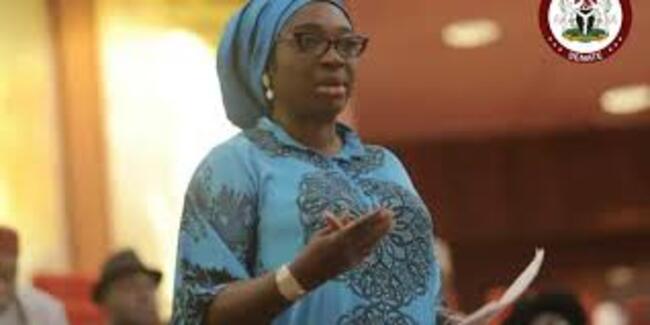Director General of the South-East Governors Forum, Senator Uche Ekwunife, says that the current administration of President Bola Ahmed Tinubu should not be blamed for the current economic hardship experienced by Nigeria.
Ekwunife, who represented Anambra Central in the 9th Assembly, stated this in a brief chat with newsmen on Sunday, noting that the economic hunger is the result of the poor policy decisions undertaken by previous government administrations, most of which President Tinubu is trying to correct.
Ekwunife emphasised that this perspective ignores the systemic issues that have long plagued the nation, dating back several decades, and lamented the consistent blaming of President Tinubu for issues deeply rooted in Nigeria’s history.
“Negativity towards one’s nation does not foster growth, progress, or development. Instead, we should focus on the positive and support the collective goal of building a better future for Nigeria,” Ekwunife remarked, pointing out that Nigerians have consistently prayed for relief from challenges like corruption and economic instability long before Tinubu took office.
According to her, “It is unrealistic to expect the newly elected president to solve multi-generational problems within a short time. Blaming him for the current struggles is a misrepresentation of the nation’s complex challenges”, stressing that Tinubu inherited many of these problems, which are largely due to an entrenched corrupt system.
Despite these challenges, Ekwunife commended President Tinubu for initiating bold reforms aimed at repositioning Nigeria, explaining that the gains of Tinubu’s reforms have started yielding positive results and urging the citizens to exercise some patience.
According to her, she understands the pains of Nigerians, and the President is also aware; she expressed her optimism that the hardship will soon become history.
When asked about the removal of the fuel subsidy, Ekwunife commended the policy, saying that the move had been avoided by past administrations despite its potential to free up funds for critical sectors like infrastructure, healthcare, and education.
Speaking on the Exchange Rate Unification, Ekwunife lauded the decision to unify Nigeria’s multiple exchange rates; she noted that the step is seen as crucial for boosting foreign investment, stabilising the naira, and creating a healthier economic environment.
“Tinubu’s introduction of social programmes such as cash transfers and palliatives for vulnerable Nigerians has helped to cushion the effects of economic reforms, especially for the poorest citizens. The president’s focus on revitalising Nigeria’s agricultural sector was highlighted as a key initiative to combat hunger and create jobs.
“The recent government allocations of fertilisers and other inputs to farmers are expected to improve food security and reduce import dependency. It is unrealistic to expect instant results from a new administration in a country where corruption and mismanagement have been entrenched for decades,” she said.
The senator concluded by calling for constructive criticism that is fair and balanced, rather than blaming the president for the nation’s long-standing issues, stating, “We must embrace optimism and work together to solve the problems we face as a nation, instead of cursing the very land we seek to benefit from.”.
ALSO READ THESE TOP STORIES FROM NIGERIAN TRIBUNE
